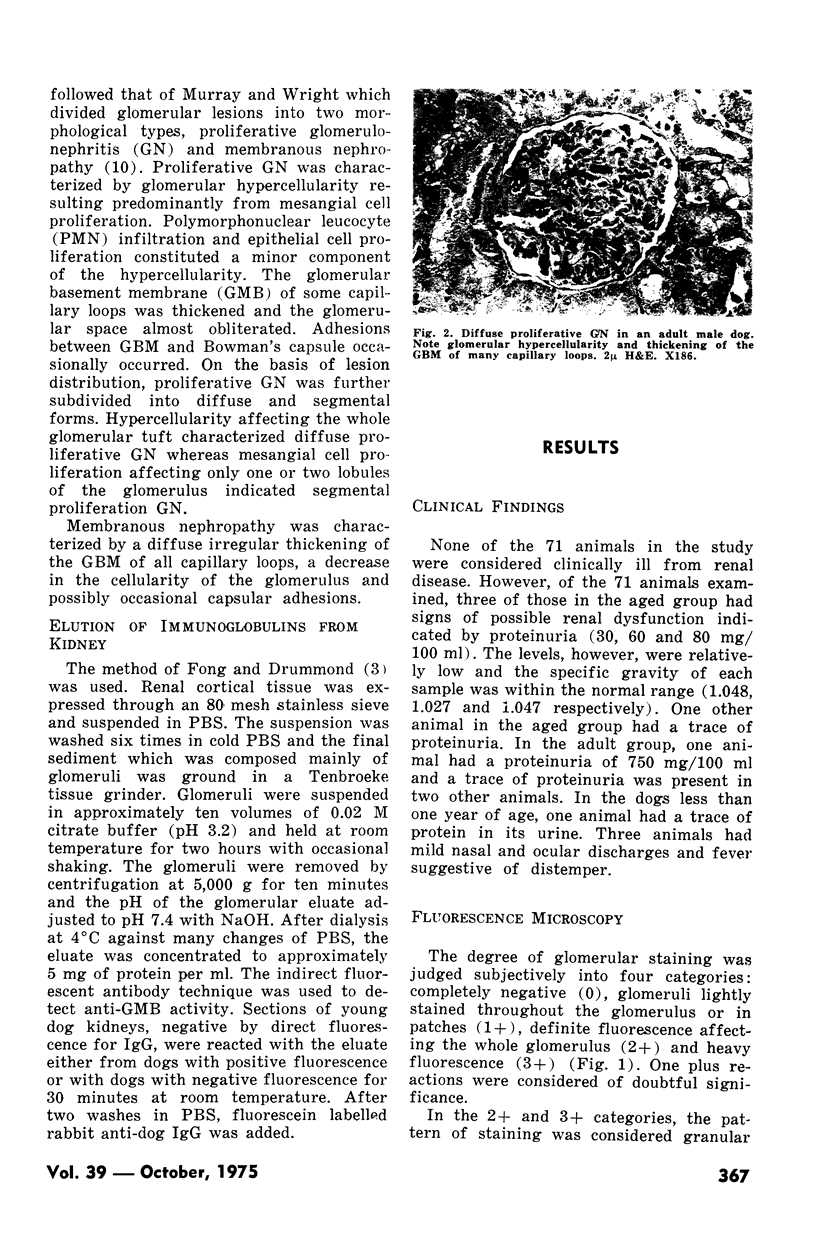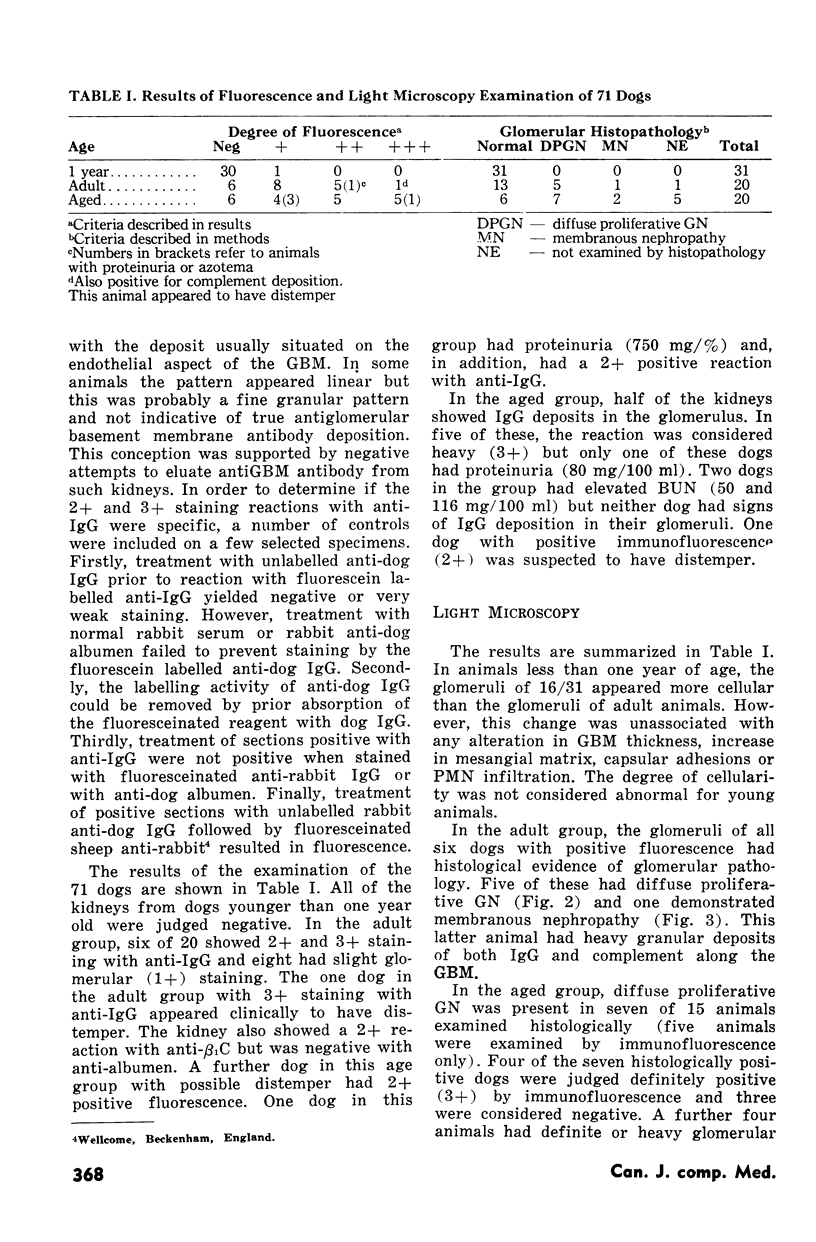Abstract
The kidneys from 71 stray dogs submitted for euthanasia were examined by fluorescence microscopy (IF) for evidence of immunecomplex glomerulonephritis (GN) and by histology for evidence of renal pathology. Dogs were divided into three groups according to estimated age: less than one year old (A), adult (B) and aged (C). IgG deposits were found in 0/31 dogs in group A, 6/20 in group B and 10/20 in group C. Diffuse proliferative GN was evident in 0/31, 5/19 and 7/15 dogs in group A, B and C respectively. One dog in group B and two in group C had histological signs of membranous nephropathy. No definite correlation between results of IF and clinical findings were noted and in the aged group the correlation between results of IF and histopathology was poor. These results serve to show that GN may be more common in dogs than previously recognized and that pathological changes may be always accompanied by clinical nephritis.
Full text
PDF





Images in this article
Selected References
These references are in PubMed. This may not be the complete list of references from this article.
- Banks K. L., Henson J. B. Immunologically mediated glomerulitis of horses. II. Antiglomerular basement membrane antibody and other mechanisms in spontaneous disease. Lab Invest. 1972 Jun;26(6):708–715. [PubMed] [Google Scholar]
- Dixon F. J. The pathogenesis of glomerulonephritis. Am J Med. 1968 Apr;44(4):493–498. doi: 10.1016/0002-9343(68)90050-8. [DOI] [PubMed] [Google Scholar]
- Fong J. S., Drummond K. N. Method for preparation of glomeruli for metabolic studies. J Lab Clin Med. 1968 Jun;71(6):1034–1039. [PubMed] [Google Scholar]
- Halliwell R. E., Blakemore W. F. A case of immune complex glomerulonephritis in a dog. Vet Rec. 1972 Mar 4;90(10):275–280. doi: 10.1136/vr.90.10.275. [DOI] [PubMed] [Google Scholar]
- Kurtz J. M., Russell S. W., Lee J. C., Slauson D. O., Schechter R. D. Naturally occurring canine glomerulonephritis. Am J Pathol. 1972 Jun;67(3):471–482. [PMC free article] [PubMed] [Google Scholar]
- Markham R. V., Jr, Sutherland J. C., Mardiney M. R., Jr The ubiquitous occurrence of immune complex localization in the renal glomeruli of normal mice. Lab Invest. 1973 Jul;29(1):111–120. [PubMed] [Google Scholar]
- Murray M., Pirie H. M., Thompson H., Jarrett W. F., Wiseman A. Glomerulonephritis in a dog. A histological and electron microscopical study. Res Vet Sci. 1971 Sep;12(5):493–495. [PubMed] [Google Scholar]
- Murray M., Wright N. G. Morphologic study of canine glomerulonephritis. Lab Invest. 1974 Feb;30(2):213–221. [PubMed] [Google Scholar]
- Walker F. The origin, turnover and removal of glomerular basement-membrane. J Pathol. 1973 Jul;110(3):233–244. doi: 10.1002/path.1711100306. [DOI] [PubMed] [Google Scholar]
- Wright N. G., Thompson H., Cornwell H. J. Canine nephrotoxic glomerulonephritis. A combined light, immunofluorescent, and ultrastructural study. Vet Pathol. 1973;10(1):69–86. doi: 10.1177/030098587301000107. [DOI] [PubMed] [Google Scholar]





